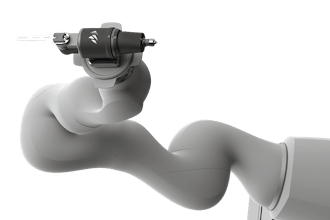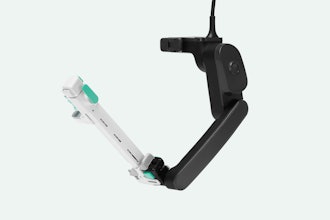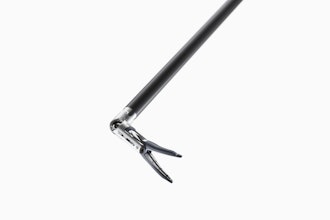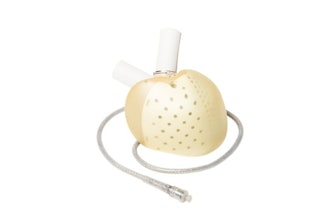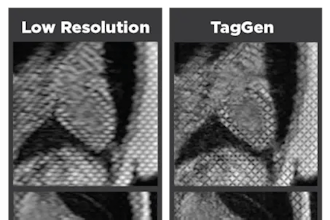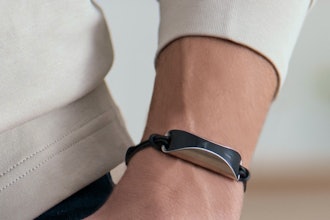
The healthcare industry has always been at the forefront of discovery and life-saving innovation, and it continues to uphold that history by adopting robotics solutions to automate processes, overcome challenges, and better serve patients. Here are 10 of the most innovative solutions I've seen.
Surgical Assistance: The da Vinci surgical system was introduced in 2000, marking it the first in the industry. The system allowed surgeons to perform surgeries with enhanced precision during operations, leading to faster recovery.
Diagnostic Robots: No more waiting for test results! The implementation of diagnostic robots provides patients with speedy and accurate medical examinations, decreasing patient stress. Medtronic's Pillcam does just that by performing tests like endoscopy with non-invasive techniques and providing detailed examinations.
 Richtech Robotics
Richtech Robotics
Medicine Delivery Robot: The healthcare industry faces a labor shortage, which means many staff are overstretched with their daily duties. Implementing Medbot to automate tasks like medicine delivery is a great solution that frees up healthcare workers. A leading healthcare center in South Carolina recently tested this theory and discovered a triple in efficiency; within 30 days, they saved $12,000 by automating medicine delivery.
Telemedicine Robots: Telemedicine robots were not only popular but vital during COVID-19 when going to the hospital was a health risk. Systems like InTouch Health's RP-VITA allow remote consultations and examinations, allowing patients to be seen in the comfort of their own homes. With cameras, microphones, and medical equipment, it enables the patient to interact in real time with healthcare providers, leading to better access to medical care.
Disinfection Robots: Sterilization of operating rooms is an essential practice in the healthcare industry to prevent the spread of disease. Disinfection robots are the perfect solution to prevent hospital acquired infections. UV-light robots like Xenex are a great example; they are used to disinfect patient rooms, operating theaters, and intensive care units, helping hospitals reduce infection rates and improve patient safety by killing harmful pathogens. After experiencing a pandemic the need for disinfection robots has never been more obvious.
 EksoBionics
EksoBionics
Robotic Exoskeletons: A world where mobility is determined by the body's limitation is slowly becoming extinct. Robots are making it a possibility for people with disabilities to gain mobility. Robotic exoskeletons such as EksoBionics help patients with strokes and spinal cord injuries regain mobility while providing a faster recovery time.
Radiology Robots: Radiation is toxic to humans, which is a well known fact so it is essential to limit exposure. Systems like Artis Zee by Siemens Healthineers are perfect tools that can assist with imaging tasks and provide accurate results.
Pharmacy Robots: Automation in pharmacies ensures accuracy in medication dosage and increases efficiency. Imagine a vending machine that is more advanced and has the ability to handle a high volume of prescriptions with precision, resulting in improved patient safety and satisfaction.
 Metadolce Service Robotics
Metadolce Service Robotics
Cleaning Robots: Unfortunately, the truth is hospitals are a hot zone for diseases, so cleaning 24 hours is a requirement to keep a clean space. Autonomous cleaning robots like Dust-E-S are the perfect solution for maintaining a clean hospital 24/7.
Robotic Companions for Mental Health: Humans are social creatures, so it’s no surprise the Journal of Medical Internet Research found social robots enhance medication compliance in older adults with chronic diseases. Patients take comfort in these robots because of their inability to pass judgment, which patients fear because of the stigma around seeking mental health help.









